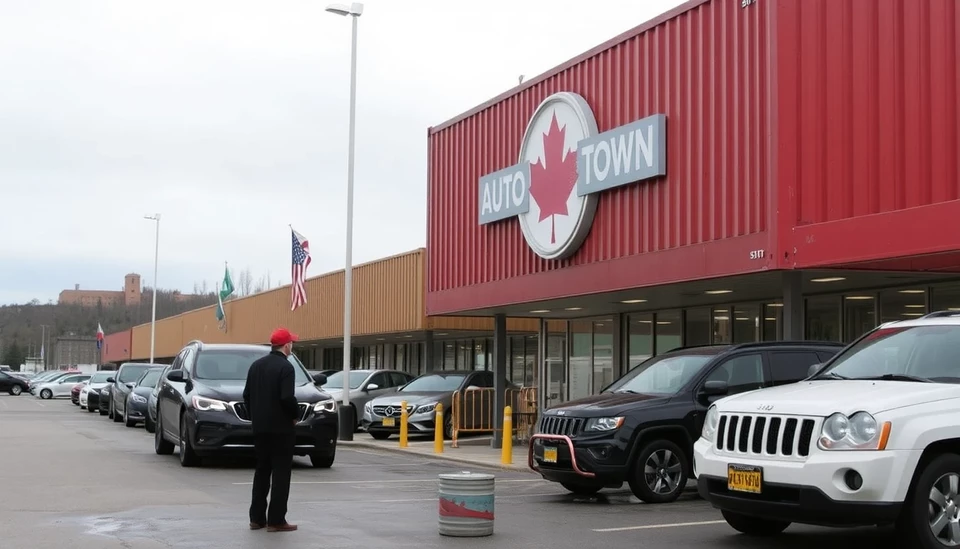
The bustling town of Oshawa, Ontario, once heralded as a powerhouse of the Canadian automotive industry, is bracing for the repercussions of heightened trade tensions stemming from the United States' ongoing trade war. This town, with roots firmly planted in car manufacturing, is experiencing a seismic shift as policy changes and economic uncertainties loom large on the horizon.
Oshawa has long been home to General Motors’ (GM) manufacturing facility, which has been a significant employer in the region for decades. However, with the current administration in Washington employing aggressive trade tactics, the future of this iconic plant hangs in the balance. Recently, GM announced the closure of its Oshawa plant, a decision that has sent shockwaves throughout the community and raised concerns about job security and the stability of the local economy.
The backdrop of this crisis includes the tariffs imposed by the U.S. on steel and aluminum, which have disrupted supply chains and increased production costs for manufacturers. These tariffs, a cornerstone of President Trump's economic policies, aim to bolster American industries but have had profound implications for Canadian automotive firms that depend on cross-border trade. Canadian auto parts manufacturers, in particular, have been caught in the crossfire, facing higher costs and uncertainty as trade negotiations continue to unfold.
In light of these developments, local government leaders and business owners in Oshawa have expressed their frustration with the trade policies that are affecting their livelihoods. Many are calling for a more balanced trade approach that recognizes the interconnectedness of the U.S. and Canadian economies. The consensus is that a protectionist stance could lead not only to job losses but also to a deterioration of the long-standing relationship between the two nations.
Moreover, the implications of these trade tensions extend beyond immediate job losses. The ripple effects of GM’s plant closure are starting to be felt by local businesses that rely on the automotive sector. Restaurants, shops, and service providers may soon face dwindling customer numbers as workers find themselves suddenly unemployed or uncertain about their financial futures. This interconnected web of dependency highlights the broader economic impact of such high-stakes trade disputes.
As Oshawa navigates this precarious landscape, the community is rallying to support each other through these challenging times. Initiatives aimed at workforce retraining and reskilling have begun emerging, signifying the town's resilience in the face of adversity. However, the path forward remains uncertain, as the ongoing trade war continues to cast a long shadow over the hopes and aspirations of its residents.
The outlook for the automotive industry in Oshawa and beyond revolves around several key factors: the evolving nature of global trade, shifts in consumer preference toward electric vehicles, and advancements in manufacturing technology. Industry experts believe that adapting to these changes will be vital for the region to regain its foothold in the automotive sector.
In conclusion, the town of Oshawa serves as a poignant reminder of the far-reaching consequences of national trade policies. As President Trump’s trade war unfolds, communities that rely on the automotive industry are left grappling with uncertainty and the need to innovate to secure their economic futures.
With the stakes so high, the people of Oshawa remain hopeful yet realistic about their situation, demonstrating resilience and an unwavering commitment to adapting to a constantly changing market. Only time will tell how these events will alter the landscape of their beloved auto town.
#Oshawa #TradeWar #AutomotiveIndustry #GeneralMotors #Canada #USRelations #EconomicImpact #JobLosses
Author: Daniel Foster




